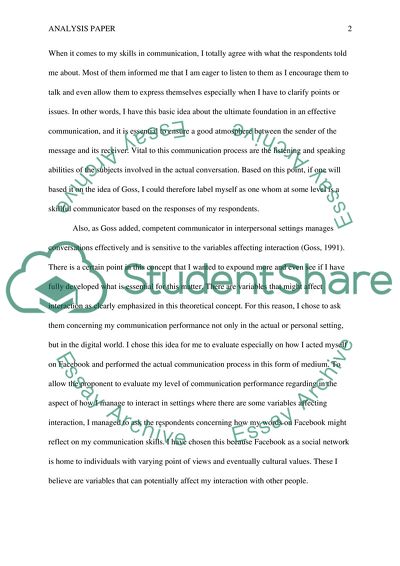Cite this document
(Nonverbal Communication in Human Interaction Essay Example | Topics and Well Written Essays - 1750 words - 2, n.d.)
Nonverbal Communication in Human Interaction Essay Example | Topics and Well Written Essays - 1750 words - 2. https://studentshare.org/journalism-communication/1806140-analysis-paper
Nonverbal Communication in Human Interaction Essay Example | Topics and Well Written Essays - 1750 words - 2. https://studentshare.org/journalism-communication/1806140-analysis-paper
(Nonverbal Communication in Human Interaction Essay Example | Topics and Well Written Essays - 1750 Words - 2)
Nonverbal Communication in Human Interaction Essay Example | Topics and Well Written Essays - 1750 Words - 2. https://studentshare.org/journalism-communication/1806140-analysis-paper.
Nonverbal Communication in Human Interaction Essay Example | Topics and Well Written Essays - 1750 Words - 2. https://studentshare.org/journalism-communication/1806140-analysis-paper.
“Nonverbal Communication in Human Interaction Essay Example | Topics and Well Written Essays - 1750 Words - 2”. https://studentshare.org/journalism-communication/1806140-analysis-paper.


